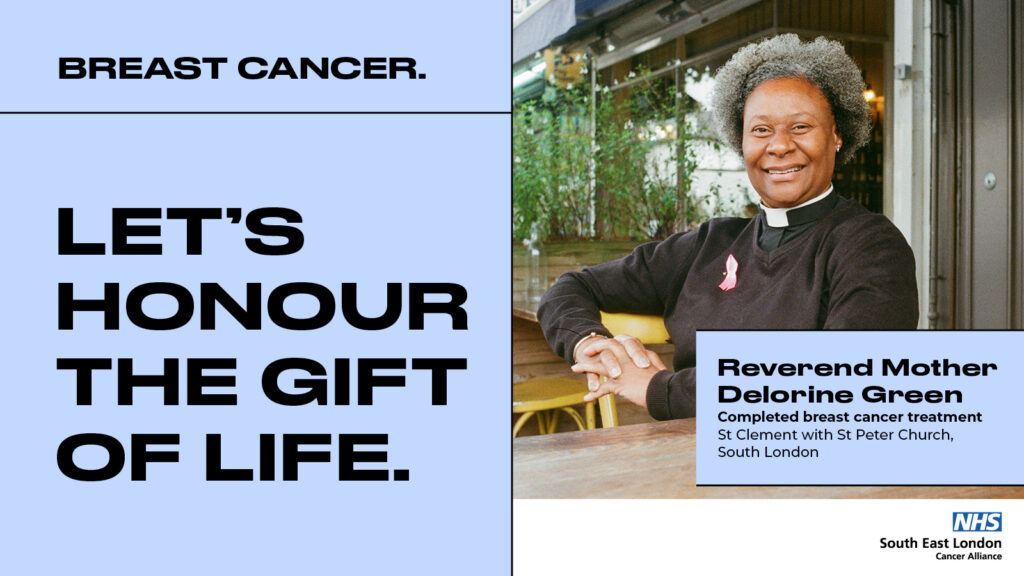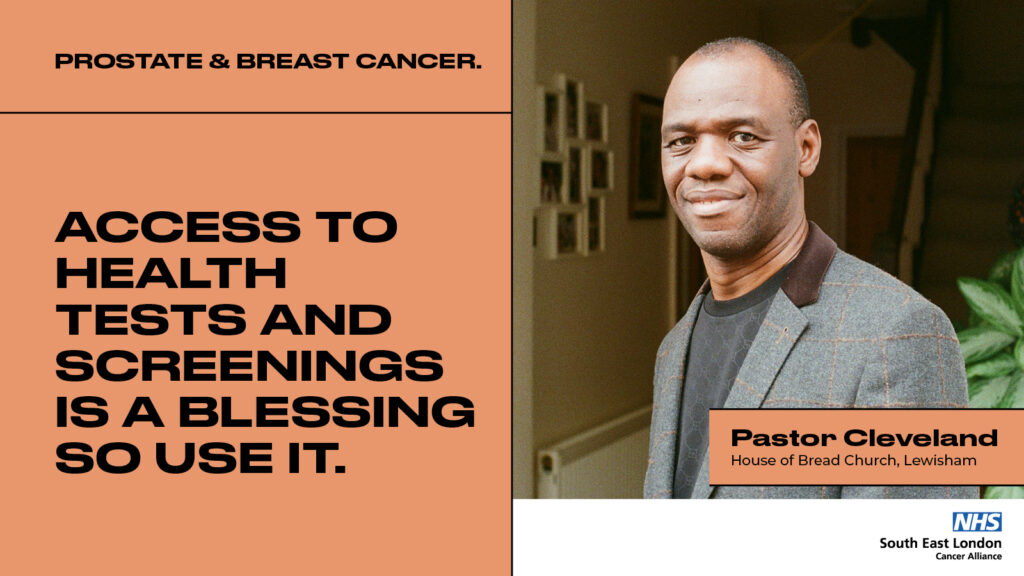South East London’s Black communities unite to tackle prostate and breast cancer
In a powerful movement to combat alarming disparities in cancer outcomes, Black communities across South East London are joining forces to encourage the uptake of breast screening appointments for women aged 50 to 71, and for Black men aged 45 and over, who have a higher risk of prostate cancer, to talk to their GP about having a PSA blood test.
With data revealing that 1 in 12 Black men will die from prostate cancer compared to 1 in 24 white men, and Black women twice as likely to receive a late breast cancer diagnosis, the urgency for action has never been clearer. These stark statistics highlight the critical need for collective action to address these inequalities. The campaign focuses on raising awareness and encouraging open discussions, with the aim of crucially increasing early cancer detection, and ultimately saving lives.

Led by South East London Cancer Alliance (SELCA), the campaign has garnered the support of organisations and businesses serving Black communities, including places of worship, retailers, barbershops, salons, as well as support from community advocates.
Launched in January at Morley’s Department Store in Brixton, the campaign has already seen a notable increase in Black women attending breast screenings and Black men discussing their risk of prostate cancer with their GP.
Dr Anthony Cunliffe, GP and Clinical Lead for Early Cancer Diagnosis at SELCA said, “While we are encouraged by these initial results, significant change requires ongoing collaboration. We are grateful for the support we’ve received and urge others to join us in this vital work.”
The campaign urges anyone who received their breast screening appointment letter but missed their appointment, or are unsure if they are up to date on their screenings, to reach out immediately and contact London Breast Screening Hub via their website or call 020 3758 2024. Breast screening appointments take place once every three years for women aged 50 to 71.
Philomena Ofudu, breast cancer survivor and Black Women Rising Ambassador who features in this campaign, said: “Attending my breast screening saved my life. I urge every woman to take it seriously – your appointment could be life-saving. Make the time for your own peace of mind, and for your loved ones.”
Pastor Cleveland from the House of Bread Church, from Lewisham is one of the places of worship supporting the campaign, said: “With over a quarter of our population in South East London being from Black communities, it’s crucial we address these alarming cancer statistics because behind the numbers are families who have lost their loved ones too soon, and devastated communities.”
GP practices across South East London are here to support Black men wanting to discuss having a PSA blood test. Dr. Chisom Okechukwu, a GP in Streatham, emphasised, “Most GP practices are busy, but we are here to help all our patients, so please remain persistent and ensure you get seen. Early detection remains the most crucial factor in improving cancer outcomes, and we encourage everyone to take proactive steps towards their health. Please do not wait for symptoms, prostate cancer in its early stages may have no symptoms.”
I know some men may assume every test concerning prostate cancer is intrusive, but that’s not the case. Some men are advised by their GP to have a PSA blood test which is a simple arm blood test.”

Prostate cancer is the most common cancer among men, while breast cancer is the most common among women. This campaign is a vital step toward bridging the disparity in cancer outcomes for Black communities in South East London. By prioritising early detection and encouraging open dialogue about cancer, the campaign is creating greater awareness, fostering action, and ultimately, saving lives.
Visit London Breast Screening website: www.london-breastscreening.org.uk or call 020 3758 2024 to reschedule breast screening appointments
About SELCA
The South East London Cancer Alliance or SELCA is one of 21 Cancer Alliance in the country. Their purpose is to ensure the highest quality of care – from receiving timely diagnosis through to treatment. This is achieved by working collaboratively with local orgs and charities – with the shared goal of fewer people getting cancer and more people surviving it.
Why this is important to Lambeth Together
We’re working to increase the uptake of the national cancer screening programmes, while also focusing on reducing inequalities in cancer. Find out more in our five-year Health and Care Plan.